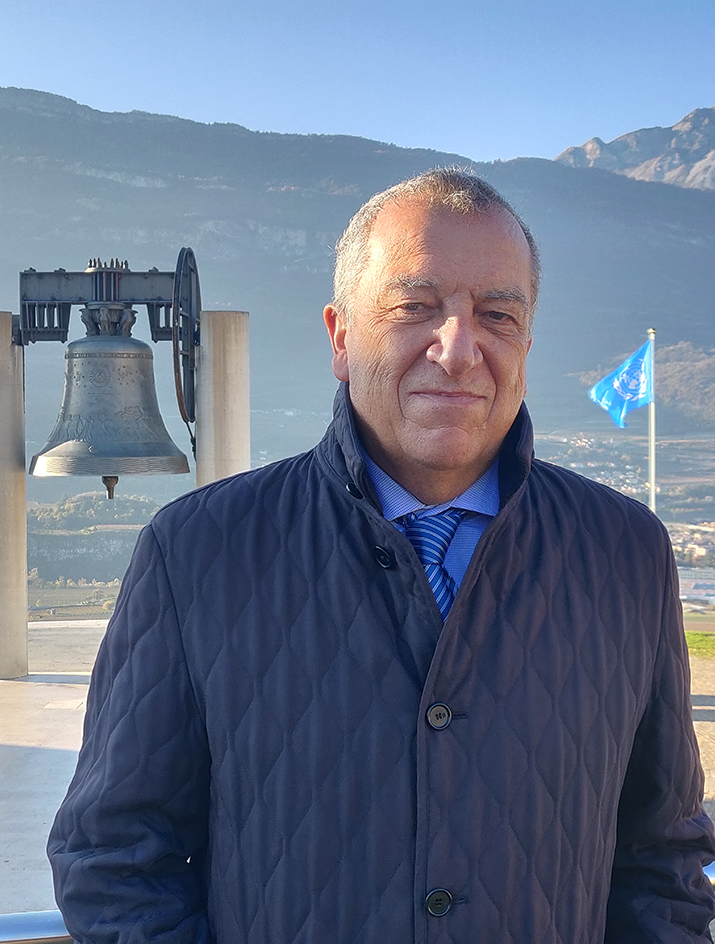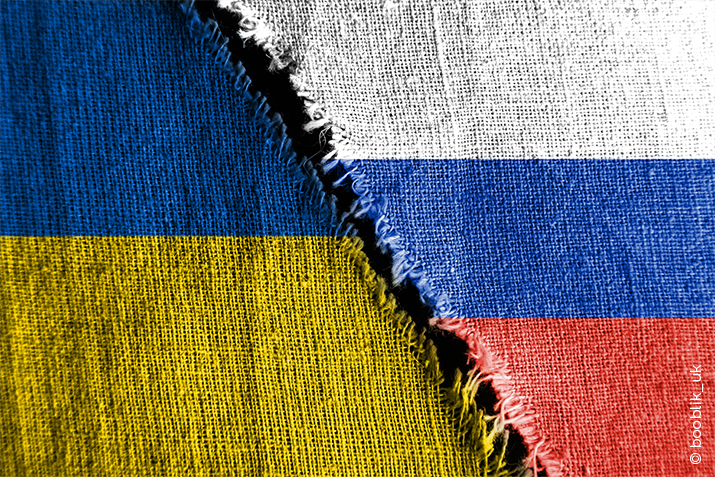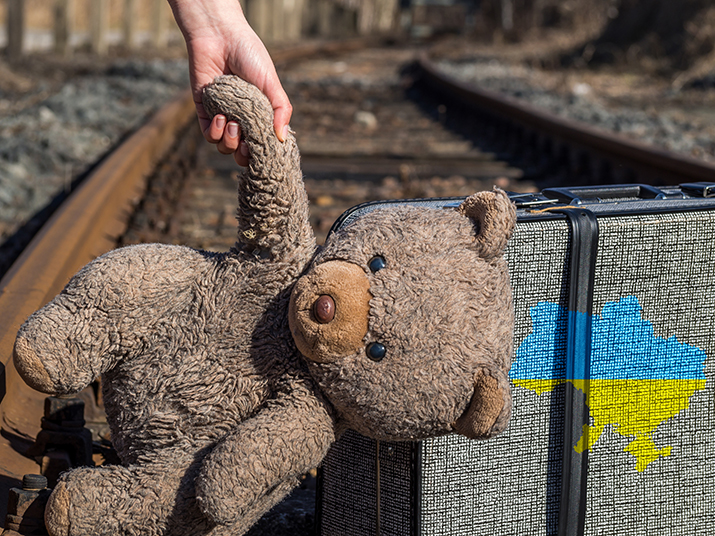As was to be predicted, the first anniversary of the Russian aggression against Ukraine was marked, on both fronts, by a number of events. Since they have been widely disseminated by Italian and foreign information bodies, for our specific purposes, they require only a brief mention.
The «historic» trip to Kiev of US President Biden; the «torrential» speech by Vladimir Putin before the "nomenklatura" of his country; the "very delicate" visit to Moscow by the head of Chinese foreign affairs, Wang Yi; the "anticipated" meeting, in the Ukrainian capital, between Zelensky and Prime Minister Meloni; the new Resolution of the General Assembly of the United Nations in order to achieve «comprehensive, just and lasting» peace. Thus, we have the most significant episodes that took place one after the other. Each of them is bound to leave after-effects of a various and complex nature so that it would be premature to attempt to analyse them at this moment in time.
If we restrict ourselves to the known elements, we see that the Russian-Ukrainian conflict, which has now entered its second year of dramatic existence, continues to represent a very serious open wound in the heart of Europe. It is so for many reasons: for the high number of human losses on the side of both the attacked and the attackers; for the immense devastation of various infrastructures and the associated costs necessary for massive reconstruction; for the brutal violence committed by the occupying troops against the resident populations; for the void that won't be filled for generations to come and that constitutes a great divide between the inhabitants of two nations, indeed marked by strong political contrasts but also by a closely intertwined, ethnic, religious and cultural history and identity.
A general, profound sense of bewilderment and impotence is further accentuated with the observation of how nothing, or barely anything, solid exists at the moment on which to build any attempt at "reconciliation". The negotiations conducted in the first month of the war through delegations (low-profile, it should be noted) from Moscow and Kiev, with the aim of putting an end to hostilities by agreeing mutual concessions, in fact resulted in nothing.
For months now, in fact, a political head-to-head has been evident, in which neither side is willing to take a step back: for fear of letting further parts of the national territory fall into the hands of Moscow in the case of Zelensky, and in Putin's case for fear of losing credibility on the domestic front (all traces of that on an international level have been irretrievably lost).
The emphasis of the moment seems to be almost exclusively concentrated on the use of ever more sophisticated and high-performance weapons now that the conflict has entered a prolonged phase of attrition and exhaustion, and the Russian offensive has resumed (we will see how long it lasts) on the various fronts (in the Donbass, in Kharkiv, in Zaporizhzhia and in other strategic points). Beyond the ongoing fighting, their use also appears essential in order to prepare those wider-ranging operations to the best of their respective capabilities that both sides, obviously with opposing objectives, have announced they will start over the next few weeks.
From this point of view, the involvement of the European Union and NATO (minus Turkey, which up to now has remained substantially equidistant between Russia and Ukraine) is becoming ever more all-encompassing, approaching a situation of “co-belligerency”. In concrete terms, it translates into a new series of military deliveries which - as in the case of the Leopard 2 tanks - has raised some doubts concerning the exclusive "defensive" nature of the armaments delivered to the Ukrainian forces. If for armoured vehicles the dividing line is not entirely clear, what of the new wishes clearly expressed by President Zelensky at the European Council on 9 February and in the en petit comité meetings which immediately preceded and took place in London and Paris? There, the discussion clearly fell on the aeronautical sector (the so-called "wings for freedom", represented by F-16 fighter jets) and long-range missiles, whose offensive capability is indubitable. According to Kiev's assessments, it is a matter of compensating the very wide numerical gap existing with the Russian Federation both from the point of view of manpower (it should be noted that the Ukrainian population is 4 times lower) and of armaments (in terms of stockpiles existing in warehouses). According to reliable estimates the cost of US military supplies to Ukraine alone in 2022 exceeded the total amount from 2020 to three traditional allies of the United States, that is Afghanistan (before, of course, its reconquest by the Mujahideen) Egypt and Israel. This fact provides a clear idea of the extent of Euro-US involvement.
Up to now the West (in the geographical configuration mentioned above) has shown a commendable cohesion, managing to amalgamate the approaches of radical and irrevocable closure with regard to Moscow, supported above all by the members of the so-called «Bucharest Nine» (made up of the 9 countries of NATO's "Eastern Flank") together with those members most aware of the need to reopen, sooner or later, some form of dialogue with the capital. The recent polls relating to local public opinion and the attitude towards the war, also widely reported by the media, are eloquent confirmation of this heterogeneity.
The 10 packages of sanctions adopted by the EU in the 12 months following the aggression form unequivocal evidence of a substantial resoluteness. They are supplemented by increasingly targeted and invasive measures and have been compared by the High Representative for Foreign Affairs Borrell - with an appropriate match to the moods of the moment - «to arsenic, which acts slowly, but irreversibly».
At the same time, the process of Ukraine's accession to the Union, with all the complex procedures this entails, is proceeding at a steady pace, following the visits to Kiev by the presidents of the Commission and the European Council as well as the aforementioned visit to Brussels by Zelensky. Against this background, it does not seem out of place to question whether the convinced military support so far granted to the Ukrainian government both by Washington (most recently, and clearly and almost «brazenly», by President Biden himself in his lightning visit to Kiev) and by Brussels, might (or rather must) coincide, with some urgency, with other initiatives. The Holy Father is an authoritative supporter of those initiatives aimed at putting an end to the bloodshed where the end is not in sight. To confirm this, it is enough to recall the very recent statements by Putin's generals who estimate a further 24 months of fighting as the period necessary to impose "Russian peace” on Ukraine. Such a period might definitively derail a convoy already engaged along an impervious route and almost devoid of safety nets.
Moreover, if the origins of the conflict are evident beyond any possible doubt and if those responsible for it stand trial, when it will be possible to do so, before the competent international justice bodies (Tribunal of the Hague), the consequences in the medium and long term will remain unpredictable. From his observatory in the United Nations Headquarters, the UN secretary general, António Guterres, in an implicit recognition of the impotence of the organization he presides over, noted how the prospects for peace are increasingly giving way to a further upsurge of armed clashes and how «never in our lives have we seen the risks of a nuclear threat grow».
Turning to a possible facilitator capable of initiating an intermediary process between the parties, which is difficult to set in motion and is uncertain in outcome, appears at this point to be difficult to postpone.
My consideration is that this role cannot be assumed by Europe (too aligned) nor by the United Nations (paralyzed by the veto system) nor by intermediate powers such as Turkey or Israel (lacking authority and as regards Turkey is also grappling with the very serious problems caused by the recent, devastating earthquake). Due to the vital relevance of the interests at stake - under political/military, geo-strategic, economic/financial aspects as well as others – the United States and the People's Republic of China would appear fully justified if they were to take coordinated action under the circumstances. Faced with the "recommendations" to reach a ceasefire which would be the first step towards a future agreement, neither Zelensky (if pressured by Biden) nor Putin (if urged to do so by Xi Jinping) could avoid this task, since in the current international situation there is no "third power" capable of opposing a measure decided by mutual agreement by the two world super-powers.
From this point of view, the proposal for a «peace plan» presented by China in connection with former Foreign Minister Wang Yi's visit to Moscow must, in my opinion, be seen to have a positive value. Many of the provisions contained therein, which are inspired by the primary need to avoid antagonizing either the Russians or the Ukrainians, end up being ambiguous, even contradictory. It is no coincidence that President Zelensky immediately declared himself available for a meeting with his Chinese counterpart with the intention, undeclared but understandable, of dislodging the "dragon" from the consolidated position of pro-Russian "neutrality". This ambiguous equidistance was confirmed a few days ago when the Chinese abstained during the vote in New York on the Resolution of the General Assembly.
On closer inspection, a unilateral initiative - however much criticized in Western capitals - is still preferable to inaction. On the other hand, Sino-American relations are characterized in this period by profound fundamental differences (referred to in the September editorial which was dedicated to the very delicate situation of Taiwan), further exacerbated by the most recent episode of the "spy balloons" (real or presumed). It is unrealistic to hypothesize a path shared by the two super-powers, especially if one considers that the planned mission to Beijing by US Secretary of State Blinken was postponed. The visit was to be an obligatory first step for a meeting between Presidents Biden and Xi Jinping, a meeting that was originally set for this year, but which has now become more uncertain.
As a final consideration, two references to the past. It is popular opinion among historians that the results of the Congress of Vienna in 1815 allowed the defeated nation, in that case France, to gradually, and without excessive trauma, reintegrate into the new international order, to the benefit of all. In the assessments of many historians, a similar response did not occur in Versailles towards Germany approximately 100 years later. Based on the "unfair nature" of the orders imposed, a series of demands - economic, military and territorial - led, with the advent of Nazism, to the well-known and tragic subsequent events.
Returning to the present day, it is certainly desirable that the solidity and steadfastness of the West contribute to bringing about the fall of the regime currently established in the Kremlin, which has placed itself, by choice and without necessity, outside any acceptable framework of legality. However much ingrained the images of the massacres of Bucha, Irpin and other Ukrainian cities remain, I believe that the model to be applied to post-Putin Russia is the "Viennese" example. The goal to strive for is a return to the normal circuit of collaboration and interaction between states of a country of fundamental importance on a global scale which, moreover, is an essential part of the pan-European geography. In summary, it is the classic case in which the end will justify the means.
Reggente Marco Marsilli, Foundation President








